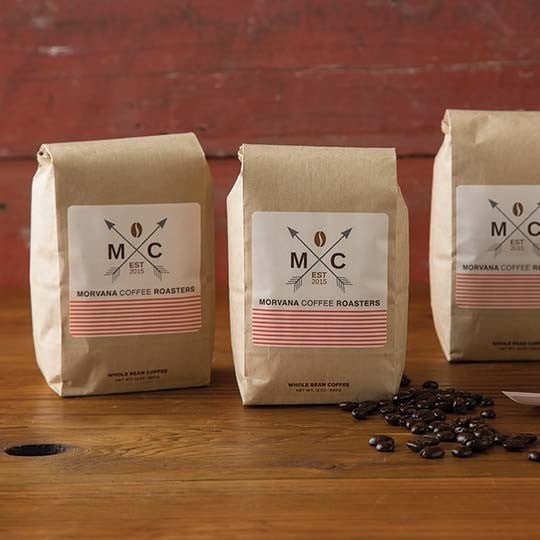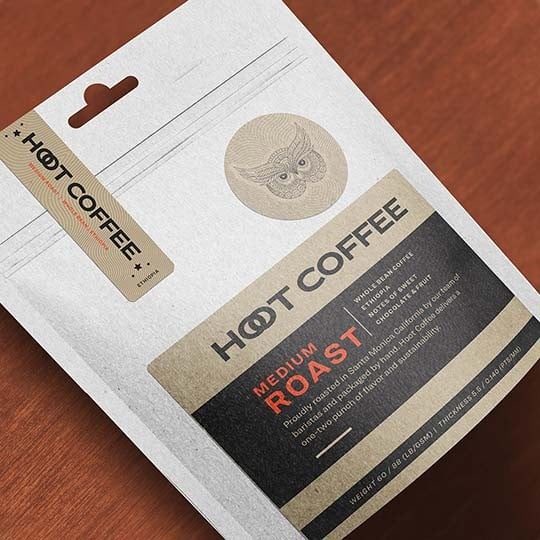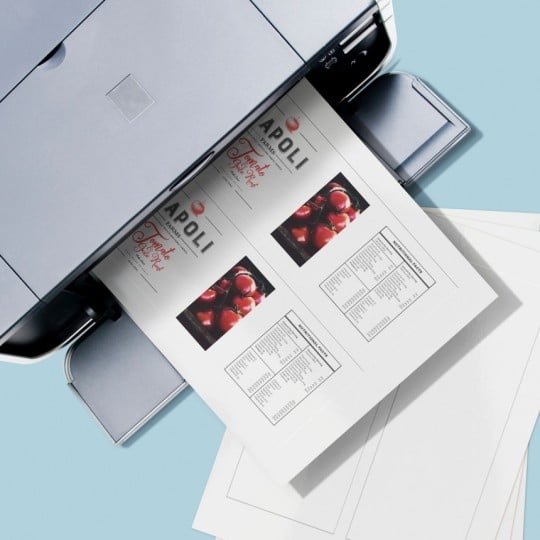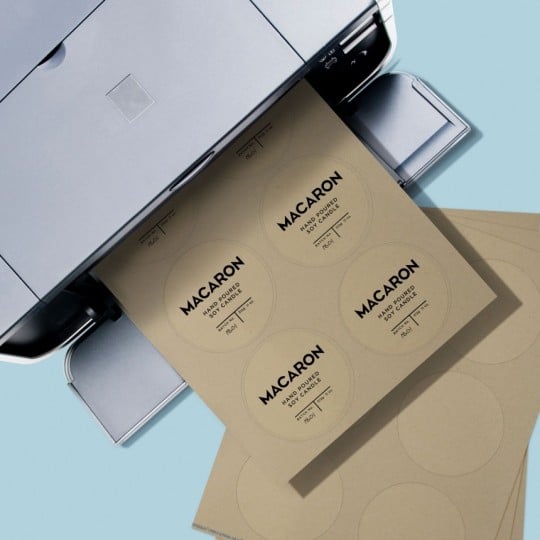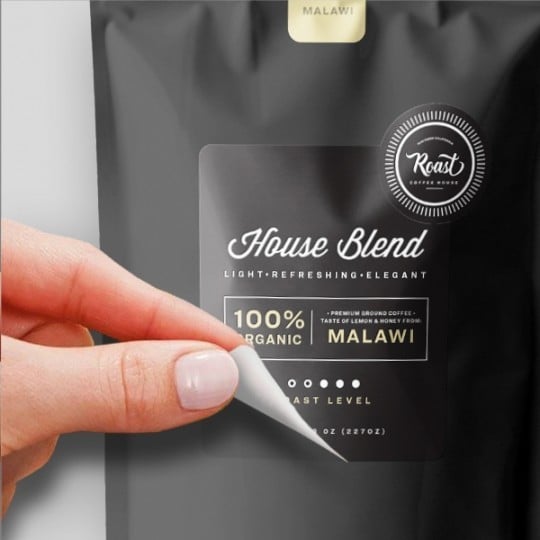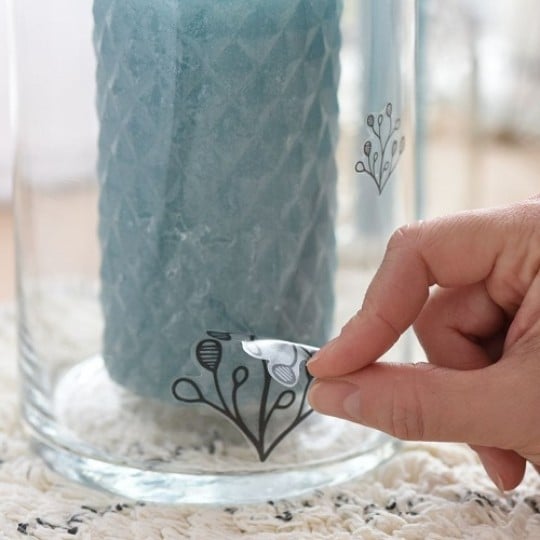Eco-friendly labels and stickers: top 10 questions and answers
All you need to know about recycled labels and other sustainable options.
Our customers and teams inspire and challenge us every day to be more responsible as a company and offer more sustainable products. We received a lot of questions about our custom eco-friendly labels, stickers and sustainable packaging, so we had a chat with our technical expert, and we tried to answer your top 10 questions with our own words (so no need to be a scientist to read this!)
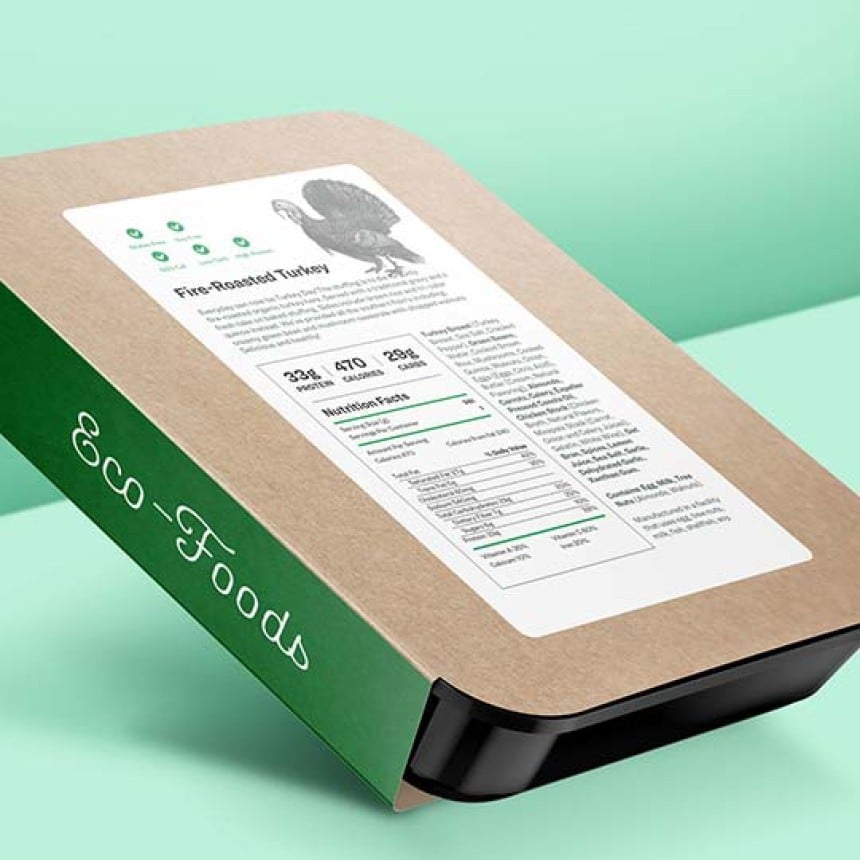
Top 10 questions:
1. Are labels and stickers bad for the environment?
2. What labels are eco-friendly?
3. Why do recycled labels have freckles?
4. Are labels and stickers recyclable?
5. Do I need to remove labels before recycling?
6. Are labels and stickers vegan?
7. Are labels and stickers biodegradable?
8. Are labels and stickers compostable?
Are labels and stickers bad for the environment?
Like most things created by humans, labels have an impact on the environment. But they are useful, for instance, to identify products, add warnings, or ship parcels.
They can even contribute to more eco-friendly products and packaging, for instance, by identifying reusable or returnable containers or by adding tracking QR codes on sustainable products to guarantee their traceability.
We have several eco-friendly label options, keep reading to find out more!
What labels are eco-friendly?
Paper labels are usually a better choice for the environment than plastic labels.
Our most eco-friendly paper labels are our recycled paper labels. They are made from 100% post-consumer waste (paper that has been used before being thrown away, such as newspapers, books, and documents).
By switching from standard paper labels to our recycled paper labels, you are:
- Using 70% less renewable resources
- Lowering the carbon footprint of your labels by 37.5%
- Using 25% less energy
- Decreasing the production of solid waste by 23.8%
- Saving 15.4% of water
- Consuming 4% fewer barrels of oil
All good news, right? You even have the choice between white and kraft recycled labels, which you can either print yourself or get printed by our professional printing service.
If you need your labels to be waterproof, tearproof, or oil resistant, you will have to use plastic labels.
Our most eco-friendly plastic labels are our compostable labels. They are produced from wood pulp sourced from responsibly managed plantations and certified compostable (OK Compost Industrial certificate from TUV). And of course, our ink is also compostable!
Another way to make your plastic labels more eco-friendly is to choose a removable adhesive to be able to reuse the containers easily.
Why do recycled labels have freckles?
Recycled labels have tiny imperfections and are less white than virgin paper labels. That’s because recycled labels are produced from a mix of various pieces of paper waste.
Here are the 5 main steps to produce recycled paper:
- First sorting: citizens and companies deposit their paper waste into the appropriate bins.
- Collection: paper waste is then collected by local councils or licensed waste carriers, and dropped off at a recycling facility.
- Second sorting: shades of waste paper are separated (for instance white paper versus brown kraft paper) and contaminants are removed (such as the greasy paper from your pizza box).
- Washing: waste paper is cleaned to remove inks.
- Production: paper waste is mixed with water then spread out to produce new recycled paper.
Are labels and stickers recyclable?
Most labels and stickers won't get in the way of the container recycling process because recycling technologies can handle a small amount of adhesive. Varnish will not be an issue either.
Paper labels are recyclable except metallic paper labels such as gold and silver. Plastic labels in polypropylene or polyester are recyclable, but polyethylene labels, plastic labels with a metallic layer, and PVC labels are not.
Although these labels are recyclable, they will not necessarily be recycled, they could also be removed during the container recycling process and be burned to make energy. Recycling is a complex process: facilities are now organised to recycle numerous materials (paper, cardboard, plastic, metal…) in a way that is financially viable but not (yet) labels.
Should I remove labels from packaging before recycling?
Good news: no, you don't! Practically all recycling technologies can handle the labels, so unless you have specific instructions from local authorities, save yourself some precious time (and your perfect manicure)!
A good reason to remove the label from your container would be to reuse it, which is always better than recycling!
Removable paper labels, removable plastic labels, and removable clear labels can be easily removed from containers without leaving any residue or damaging the container. If the adhesive is permanent and the label does not come off easily, we have a few tips on how to remove labels from jars and bottles.
Are labels and stickers vegan?
Labels can be considered vegan if they contain nothing produced by or derived from animals.
At Avery, all our blank labels are vegan, and all our print service materials are vegan, except our removable paper because it contains calcium stearate.
Are labels and stickers biodegradable?
Labels are considered biodegradable if they can be disintegrated by the action of micro-organisms such as bacteria or fungi while getting assimilated into the environment.
At Avery, most paper labels are considered biodegradable because they are made of natural materials. The only exceptions are gold and silver labels because of the metallic layer.
Are labels and stickers compostable?
Our eco-friendly plastic labels and our eco-friendly clear labels are compostable. They comply with the EN 13432 standard for composting and have the OK Compost Industrial certificate from TUV.
Compostable waste is collected for industrial composting in green compost bins. Your compostable labels need to be stuck onto paper, cardboard, or compostable plastic packaging. Share some instructions with your customers for them to compost your packaging with the labels. They can contact their local council to know where the nearest compost bins are in their area.
Industrial composting (sometimes called commercial composting) is designed to compost a high volume of waste with a standardized process that can take from 3 months to 1 year. The compost produced can then be sold to farms and plant nurseries.
Watch out: oxo-degradable plastics are not compostable, they are broken down into micro-plastics. Our eco-friendly plastic labels are better: they are digested by microorganisms during composting.
Check out our labels with eco-friendly certificates. They are pre-packed in boxes of 10, 25, 40, 50, 100, or 250 sheets with a tracking code to guarantee traceability from the forest until it gets in your hands.
How to make my packaging more eco-friendly?
To be more eco-friendly, follow the 3 R philosophy: REDUCE, REUSE, RECYCLE.
Reduce:
- Reduce your water, energy, and resource consumption by choosing recycled packaging and recycled labels
- Reduce the size of your packaging (you can order custom label sizes to match your packaging).
- Reduce your waste by ordering only what you need. At Avery, we offer custom quantities for both our print service and our blank labels.
- Reduce your carbon footprint by shopping locally. Our Avery labels are produced in the UK.
Reuse:
- Design your packaging to be reused by your customers to store your products or for a completely new usage
- Choose removable labels that can be removed without leaving any residue to make the containers easy to reuse
- Use returnable packagings which you can identify with QR code labels
Recycle:
- Choose recyclable materials such as paper, cardboard, PET, or glass. Our labels will not get in the way of the recycling process.
- Match the material of your label with the material of your packaging for better recycling

What is Avery doing for the environment?
Actions speak louder than words, so we will share some concrete actions:
- Almost 100% of our brown box waste is reused or recycled
- Over 90% of our products are produced locally in Northamptonshire
- We are using high-efficiency LED lighting in our factory and office
- Over 80% of paper labels products are sourced from responsibly managed forests
- We installed electric car charging points at our sites
Have a look at our latest sustainability commitment.


